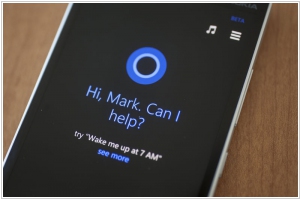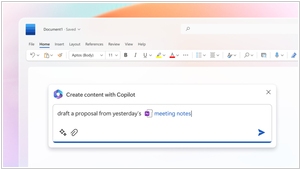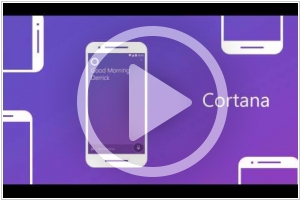Cortana vs Microsoft Copilot
August 12, 2023 | Author: Adam Levine
Cortana and Microsoft Copilot are distinct AI offerings by Microsoft, each designed to address different aspects of user interaction. Cortana, an intelligent virtual assistant, is designed to assist users in managing tasks, schedules, and providing contextual information through voice and text interactions. It aims to enhance productivity and convenience in daily activities. On the other hand, Microsoft Copilot, a collaboration between GitHub and OpenAI, is an AI coding assistant that targets software developers by providing code suggestions, autocompletions, and documentation within integrated development environments (IDEs).
See also: Top 10 AI Assistants
See also: Top 10 AI Assistants
Cortana vs Microsoft Copilot in our news:
2023. Microsoft brings Copilot to Windows 10
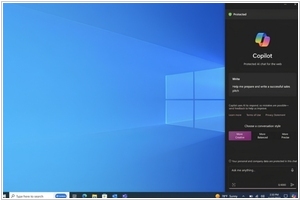
With the upcoming release of Windows 10 version 22H2, accessible to participants in Microsoft's Windows Insider program, Windows 10 is set to acquire Copilot capabilities akin to those found in Windows 11. Users will have the ability to pose questions and seek suggestions from Copilot across various tasks and subjects, engaging with the chatbot through either typed or spoken interactions after activating the Copilot icon on the taskbar. However, the experience on Windows 10 is somewhat limited compared to Copilot on Windows 11, as it currently cannot execute actions such as customizing preferences, adjusting settings, or opening applications—though Microsoft suggests in a blog post that these functionalities may be introduced in future updates.
2023. Microsoft rebrands Bing Chat to Copilot
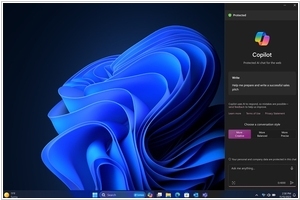
Earlier this year, Microsoft initiated a significant AI initiative within its Bing search engine, seamlessly incorporating a ChatGPT-like interface into search results. Now, in less than a year, the company is rebranding from Bing Chat to Microsoft Copilot, the new moniker for the chat interface accessible through Bing, Microsoft Edge, and Windows 11. Initially, Microsoft emphasized competition with Google in the realm of AI, but it appears that the focus has shifted towards ChatGPT. This rebranding coincides with OpenAI's revelation that 100 million users engage with ChatGPT weekly. Despite a substantial partnership between Microsoft and OpenAI, valued in billions, both entities are vying for the same clientele in the AI assistant market, with Microsoft positioning Copilot as the preferred choice for consumers and businesses.
2023. Microsoft Bing to gain more personalized answers, support for DALLE-E 3 and watermarked AI images
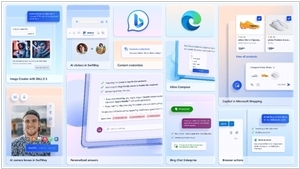
Microsoft's Bing is set to undergo significant AI enhancements, incorporating support for OpenAI's latest DALLE-E 3 model, delivering more personalized responses in both search and chat functionalities. Additionally, the platform will feature tools to watermark images as AI-generated. These updates were unveiled at an event in New York, where Microsoft also introduced new Surface devices equipped with built-in AI experiences. The Windows 11 upgrade, scheduled for September 26, will bring numerous AI improvements, including the integration of the AI helper Copilot, expanding its reach to Bing, Edge, and Microsoft 365 Copilot in the fall. For enterprise customers, both Microsoft 365 Copilot and a new workplace AI assistant, Microsoft 365 Chat, will be available starting November 1, 2023. Moreover, AI experiences are slated to extend to various Windows apps such as Paint, Photos, Clipchamp, and more.
2023. Microsoft replaces Cortana with Copilot in Windows
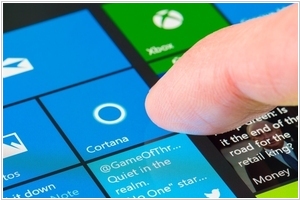
Microsoft is discontinuing its digital assistant Cortana in Windows, considering it as a stepping stone towards the future of AI. Instead of relying on Cortana, users will now turn to a smarter chatbot powered by GPT-4, thanks to Microsoft's partnership with OpenAI. In May, the company also announced integrating this new ChatGPT-based Bing experience directly into Windows 11. During this transitional period, Cortana will still exist in some capacity, but the standalone Windows app will no longer be supported. Nonetheless, users can access Cortana in Outlook mobile, Teams mobile, Microsoft Teams display, and Microsoft Teams rooms. To fill the void left by Cortana, Microsoft suggests exploring alternatives like Windows 11 voice access for controlling the PC through voice commands, the new AI-powered Bing, Microsoft 365 Copilot, and Windows Copilot, which provide centralized AI assistance for Windows users.
2020. Microsoft launches new Cortana features for business users
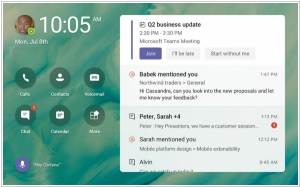
Cortana might have faced failure as a virtual assistant targeted at consumers, but Microsoft is maintaining its confidence in the platform for business purposes, now rebranded as a "personal productivity assistant" within Microsoft 365. Today, Microsoft unveiled several new Cortana services designed specifically for business users. Among these offerings is the widespread availability of Cortana for the new Microsoft Teams displays, which the company is launching in collaboration with various hardware vendors. These displays can be thought of as dedicated smart screens for Teams, similar to Google Assistant-enabled smart displays, but with a primary focus on meetings. In today's world, it is challenging to introduce a device like this without incorporating a voice assistant, and that's where Cortana comes into play.
2020. Microsoft to sunset Cortana on iOS and Android in pivot to productivity-focused assistant
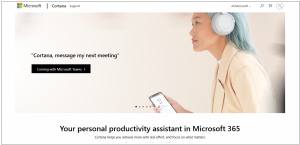
Microsoft has announced the discontinuation of Cortana on iOS, Android, and Surface Headphones, as the company shifts its focus towards business and enterprise technology rather than consumer offerings. Instead of competing with established leaders in the virtual assistant market, such as Apple, Google, and Amazon, Microsoft will concentrate on integrating Cortana's features into its suite of productivity products, Microsoft 365. This strategic decision reflects Microsoft's commitment to strengthening its presence in the enterprise technology sector, where it has experienced significant growth, while Cortana has faced challenges in keeping up with its competitors.
2020. Microsoft’s Cortana drops consumer skills as it refocuses on business users
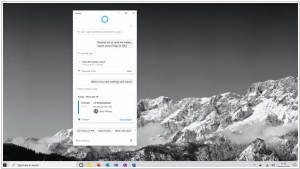
With the upcoming release of the next version of Windows 10 in the spring, Microsoft's Cortana digital assistant will undergo significant changes, particularly in terms of its consumer-focused capabilities related to music, connected homes, and third-party skills. As Microsoft stated last year, Cortana is now primarily positioned as a service for business users. The revamped Cortana will prioritize productivity and offer seamless integration with Microsoft's suite of Office tools. Consequently, consumer-oriented services are considered distractions, and Microsoft is ceding that market to competitors like Amazon and Google. Initially, these changes will only affect English-speaking users in the United States, while the rollout of most productivity features for users outside the U.S. will occur in the future.
2017. Cortana arrived in Skype
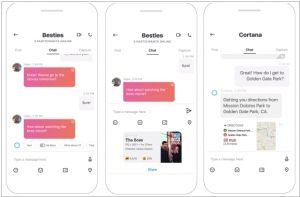
Finally making its debut in Skype, Microsoft's virtual assistant Cortana now provides users with in-context assistance during their conversations. Moreover, users can directly message Cortana to ask questions or seek help with various tasks. This move by Microsoft aligns with the trend of integrating AI-based helpers into mobile messaging platforms, as seen with Google Assistant in Google's Allo app and Facebook Messenger's own assistant, "M." Cortana brings a wide range of capabilities to the table, such as suggesting restaurant options, providing movie reviews, suggesting meeting spots, offering factual information, and more. Additionally, Cortana can assist with event scheduling and setting reminders, which seamlessly sync with other Cortana-enabled devices, including Windows 10 PCs. With Cortana's integration, Skype users now have a versatile AI-powered assistant to enhance their messaging experience.
2016. Microsoft redesigned Cortana for iPhone and Android
The virtual assistant Cortana hasn't gained significant popularity on iOS and Android platforms. Consequently, Microsoft has undertaken a redesign to enhance its appeal. In the revamped version of Cortana, commonly used "quick actions" have been given greater prominence. While these actions are still accessible with a tap from the main screen, tasks such as viewing your day, setting or viewing reminders, checking meetings, and reading news now occupy a more prominent position within the user experience. The previous black-and-white theme has been replaced with an aesthetically pleasing shade of purple. Under the hood, Microsoft has also implemented speed improvements to make the app feel faster than its previous iteration.
2015. Microsoft integrates Cortana into Power BI service

Microsoft has made an announcement stating that the Cortana personal assistant will be integrated into Power BI, its business intelligence tool. It's important to note that Power BI already possessed some natural language query capabilities. With this integration, Cortana will be able to respond to written and spoken queries using data sets from Power BI. For instance, users can ask questions like "What was the revenue for the last quarter?" or request a chart showing the "number of opportunities by team." To utilize this new feature, users must grant Cortana access to their Power BI data sets. It's worth mentioning that Microsoft also offers Cortana Analytics, which caters to enterprises and focuses more on the machine learning and automation services that drive Cortana, rather than the Cortana client itself.

